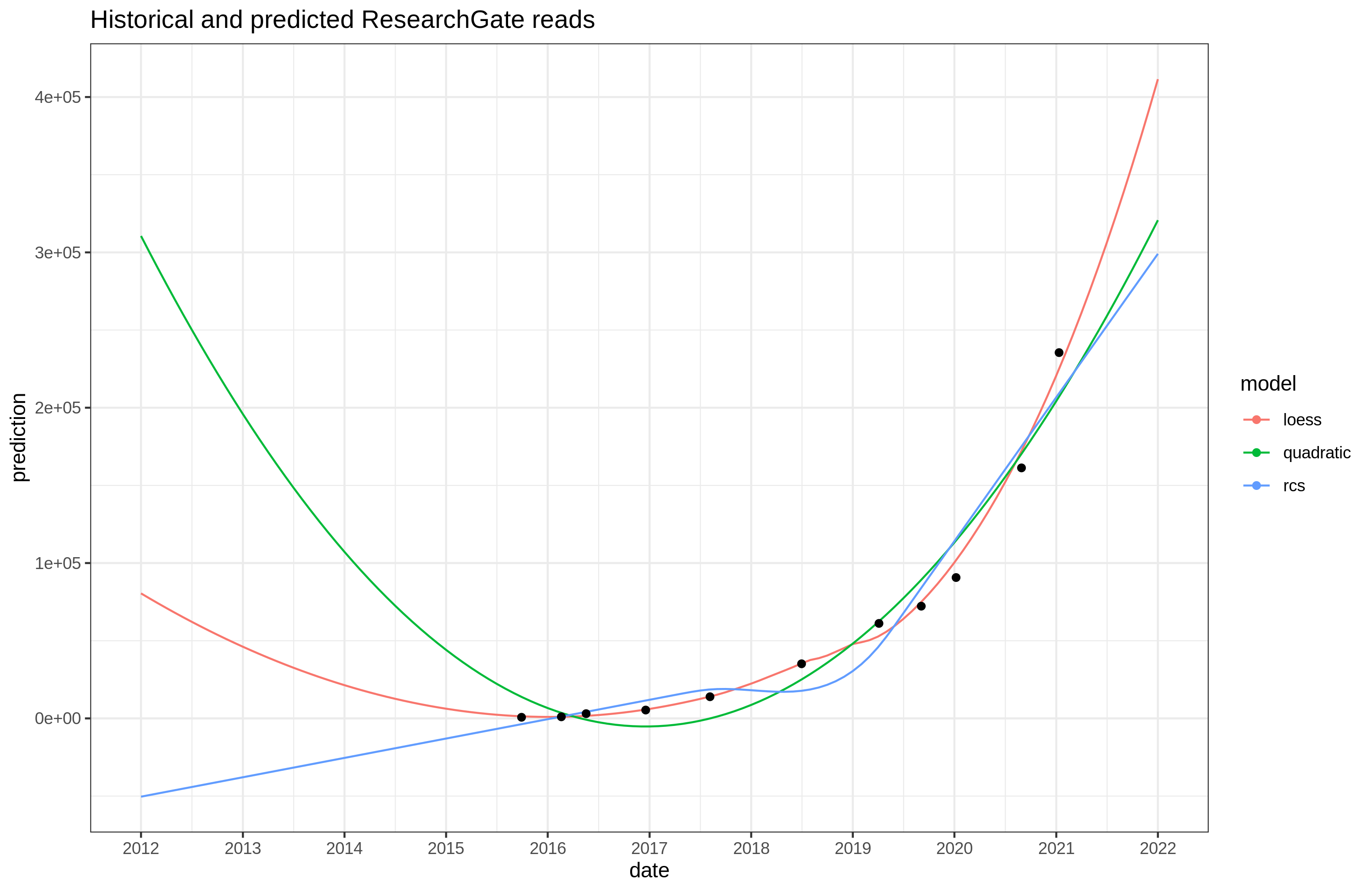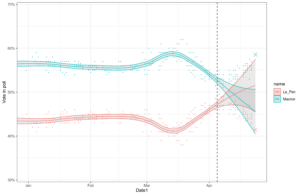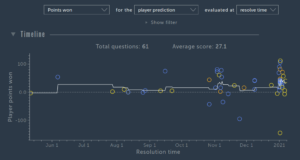Last year’s post (2020) and scoring the predictions.
These are goals and projections for my various productivity measures. These are all based on ignoring the tail risk of getting banned (which is now substantial across platforms).
The method of doing projections is not difficult: gather some prior data, eyeball the data, project with simple models, apply some adjustment for expected deviations (expect good/bad year to come).
ResearchGate
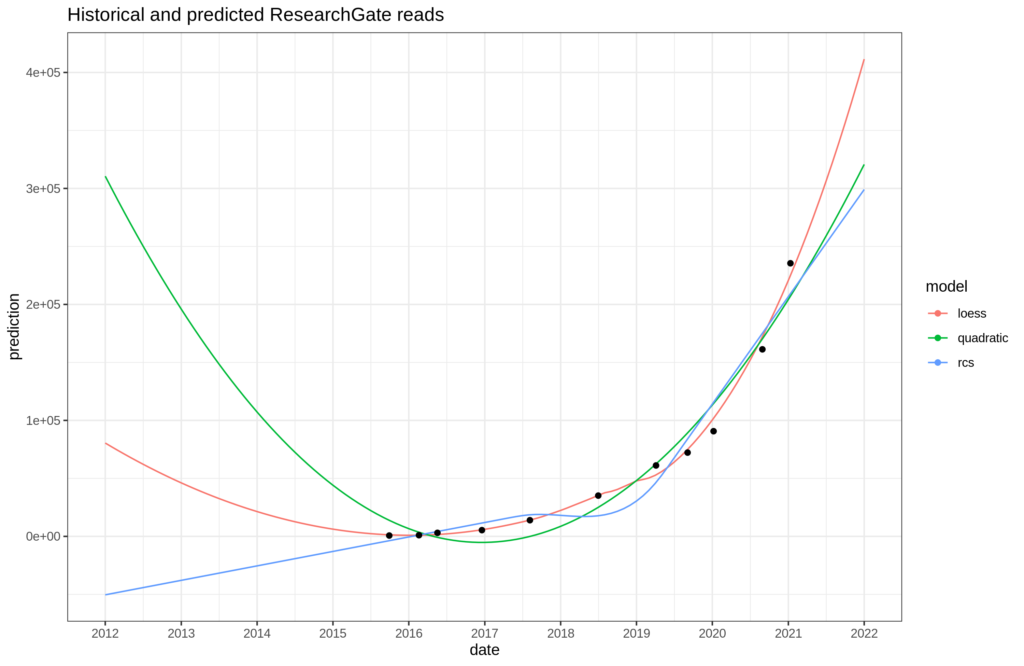

I could have added an exponential model as well, but probably not much different from the quadratic one. In both cases, I predict values in between what the models suggest. This is essentially being function form agnostic, with roughly equal weight assigned to these models (Similar to Bayesian model averaging). I put the estimate at 349k [327k, 379k], and at 705 [639, 778]. The values in brackets are the 25% and 75% centiles of the probability distribution
(And no, we don’t care that the models produce nonsense results (below 0) in the past. We only care about the future.)
Youtube

The loess is clearly inappropriate. Otherwise, seems pretty linear, so I project 2.2k [1.9k, 2.6k].
Blogposts
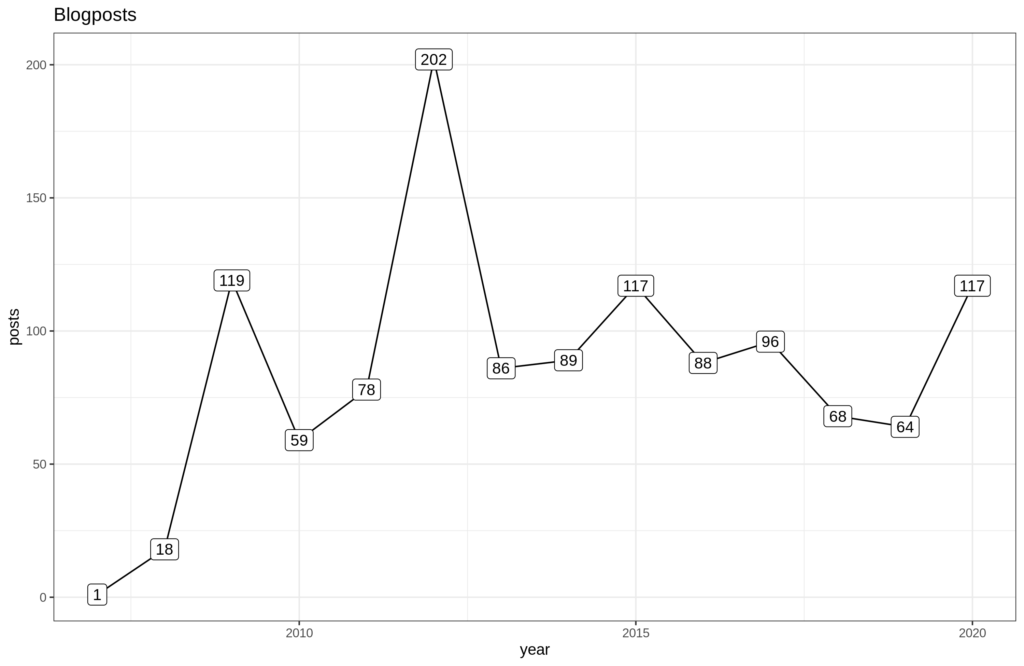
In this case, the linear model is p > .05. This suggests that the best guess is just using the historical average, or the last value (if they are autocorrelated). I put the estimate at 85 [57, 113].

The models are essentially equivalent. So we add some uncertainty, and I estimate 14.5k [14k, 15k].
Reading (Goodreads)
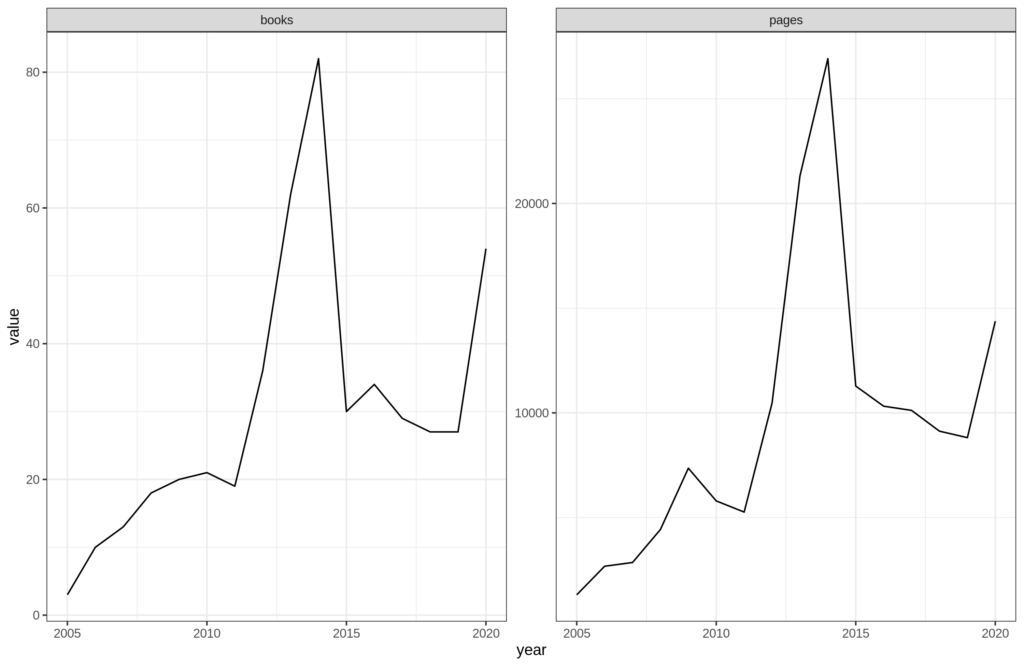
One might think that one can game the system by reading more short books. Turns out these correlate 0.98, so this doesn’t play much role. The models have p = 0.03, so we don’t trust them much. I estimate 55 [37, 73].
Google Scholar citations

The yearly gains have p > 0.05, so we can simply project with linear model. I try to predict the new citation count in 2021, and put this at 120 [100, 140]. I am optimistic because I have no financial obligations this year (I think), meaning I can do science full-time. Furthermore, OpenPsych 2.0 is now ready, so I have an alternative friendly outlet other than Mankind Quarterly (which is slow, only 4 issues per year versus OpenPsych continuous publication).
